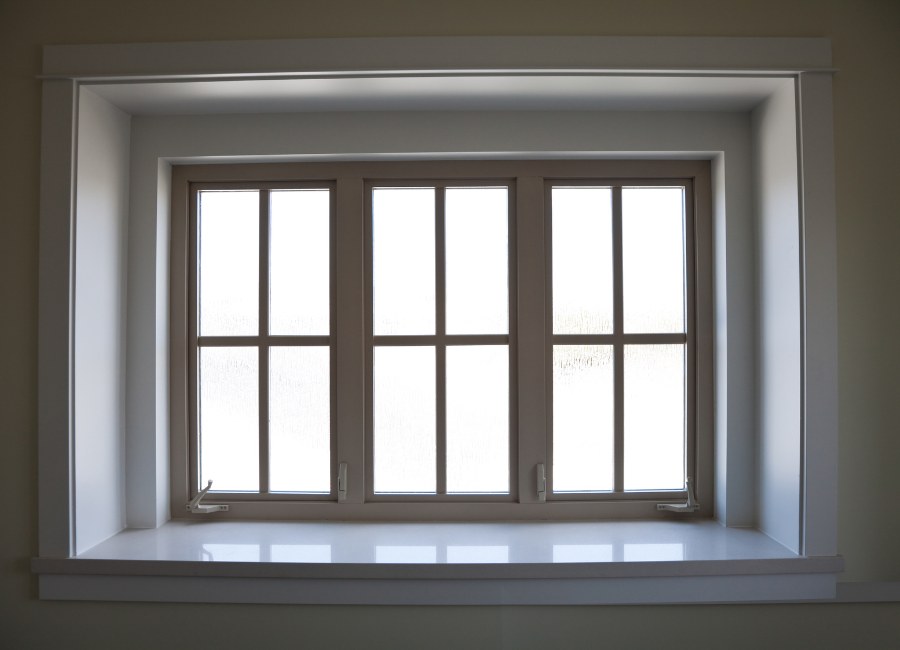Window frames are an essential component of any window system. They provide structural support, hold the glass in place, and help to keep the elements out. A well-designed and properly installed window frame can improve the energy efficiency of a building, reduce noise transmission, and enhance the overall appearance of a property.
This guide aims to provide an overview of the different types of window frames available in the market, their advantages, disadvantages, and maintenance requirements. By understanding the characteristics of each type of window frame, homeowners, architects, and builders can make informed decisions about the type of frame that is best suited to their needs.
Whether you are replacing an old window or building a new home, this guide will help you navigate the choices available and choose the most suitable window frame for your needs. We will also provide an overview of the factors to consider when choosing a window frames type, such as cost, energy efficiency, durability, and aesthetics. By the end of this guide, readers will be equipped with the knowledge needed to select the perfect window frame for their home or building project.
Types of Window Frames
Wood Window Frames:
Characteristics and advantages of wood window frames:
Wooden window frames are a traditional and popular option that offers a classic and natural look. They are often preferred for their aesthetic appeal and ability to add warmth to a space. The advantages of wood window frames include their insulation properties, durability, and sound reduction capabilities. They are also easy to customize and can be painted or stained to match any home decor.
Disadvantages of wood window frames:
However, there are some disadvantages to wood window frames. They require regular maintenance to prevent decay and insect damage, and they can be expensive compared to other materials. Moreover, wood frames can be susceptible to warping and shrinking, which can affect their overall performance.
Maintenance requirements for wood window frames:
To maintain wood window frames, they should be inspected annually for signs of damage, and any areas of rot or decay should be repaired immediately. They should also be painted or sealed every few years to protect against moisture and UV damage. Proper maintenance can extend the lifespan of wood window frames and help to ensure their continued performance.
Vinyl Window Frames:
Characteristics and advantages of vinyl window frames:
Vinyl window frames are a popular option due to their affordability and low maintenance requirements. They are made of a durable and weather-resistant material that is available in a range of colours and finishes to match any home decor. Vinyl window frames are also energy-efficient, as they provide a strong thermal barrier that can help to reduce heating and cooling costs.
Disadvantages of vinyl window frames:
However, there are some disadvantages to vinyl window frames. They are not as durable as some other materials and can become brittle over time, especially in extreme temperatures. Additionally, they cannot be painted or stained, which limits their customization options.
Maintenance requirements for vinyl window frames:
Maintenance requirements for vinyl window frames are minimal. They can be cleaned with soap and water and do not require any additional sealing or painting. However, they should be inspected annually for signs of damage, and any cracks or damage should be repaired promptly to prevent further deterioration.
Overall, vinyl window frames are a low-cost, low-maintenance option that provides good energy efficiency and a variety of style options.
Aluminum Window Frames:
Characteristics and advantages of aluminum window frames:
Aluminum window frames are a durable and low-maintenance option that is often used in commercial buildings and high-traffic areas. They are lightweight, strong, and resistant to rust and corrosion. Aluminum frames are also highly customizable and can be painted or anodized to match any colour scheme.
The advantages of aluminum window frames include their strength, durability, and resistance to the elements. They are also highly recyclable, which makes them an eco-friendly option.
Disadvantages of aluminum window frames
However, there are some disadvantages to aluminum window frames. They are not as energy-efficient as other materials and can contribute to heat loss or gain if not designed properly. They are also more expensive than vinyl frames.
Maintenance requirements for aluminum window frames:
Maintenance requirements for aluminum window frames are minimal. They should be cleaned regularly with soap and water and inspected annually for signs of damage or wear. Any cracks or damage should be repaired promptly to prevent further deterioration.
Overall, aluminum window frames are a strong and low-maintenance option that is ideal for commercial buildings or high-traffic areas. However, they may not be the best choice for residential buildings where energy efficiency is a top priority.
Fiberglass Window Frames:
Characteristics and advantages of fibreglass window frames:
Fibreglass window frames are a relatively new option that offers a balance of strength and energy efficiency. They are made of a composite material that is strong, durable, and resistant to weather and temperature changes. Fibreglass frames are also highly energy-efficient, as they provide excellent insulation and reduce heat transfer.
Advantages of fibreglass window frames:
The advantages of fibreglass window frames include their strength, durability, energy efficiency, and low maintenance requirements. They are also highly customizable and can be painted or stained to match any home decor.
Disadvantages of fibreglass window frames:
However, there are some disadvantages to fibreglass window frames. They can be more expensive than other materials and may not be as widely available. Furthermore, they may not offer the same level of customization as wood frames.
Maintenance requirements for fibreglass window frames:
Maintenance requirements for fibreglass window frames are minimal. They can be cleaned with soap and water and do not require any additional sealing or painting. However, they should be inspected annually for signs of damage or wear, and any cracks or damage should be repaired promptly to prevent further deterioration.
Overall, fibreglass window frames are a strong and energy-efficient option that provides a good balance of durability and low maintenance. They may be a good choice for homeowners who want the benefits of wood frames without the high maintenance requirements.
Comparison of Window Frame Types:
Overview of the pros and cons of each type of window frame:
When choosing a window frame type, it is essential to consider the pros and cons of each option. Wood frames offer a classic and natural look but require regular maintenance, while vinyl frames are affordable and low maintenance but cannot be customized. Aluminum frames are durable and customizable but not as energy-efficient as other materials, while fibreglass frames offer a balance of strength and energy efficiency but can be more expensive.
Factors to consider when choosing a window frame type:
Factors to consider when choosing a window frame type include the climate in your area, the style and design of your home, and your budget. If you live in an area with extreme weather conditions, you may want to consider a more durable and weather-resistant material such as aluminum or fibreglass. If you want a classic and natural look, wood frames may be the best option for you. If you are on a budget and want a low-maintenance option, vinyl frames may be the way to go.
By considering the pros and cons of each option and weighing them against your priorities, you can choose the window frame type that is right for you. Our expert team at Knight Doors and Windows Ltd. can customize the best window frame type for your home/office according to your specific needs and preferences. Call us @ 780-457-3667.
Conclusion:
In conclusion, choosing the right window frame type is an important decision that can have an important impact on the look and feel of your home, as well as it’s energy efficiency and maintenance requirements. Each type of window frame has its own unique advantages and disadvantages, and the best choice for your home will depend on your individual needs and preferences.
Wood frames offer a classic and natural look but require regular maintenance, while vinyl frames are affordable and low maintenance but cannot be customized. Aluminum frames are durable and customizable but not as energy-efficient as other materials, while fibreglass frames offer a balance of strength and energy efficiency but can be more expensive.
When choosing a window frame type, it is important to consider factors such as your climate, home design, and budget, and weigh the pros and cons of each option. By taking these factors into account and choosing a window frame type that fits your specific needs, you can enjoy a comfortable and energy-efficient home for years to come. Contact us @ 780-457-3667 to discover why Knight really is a leader in providing windows and doors to Edmonton’s residential clients.





